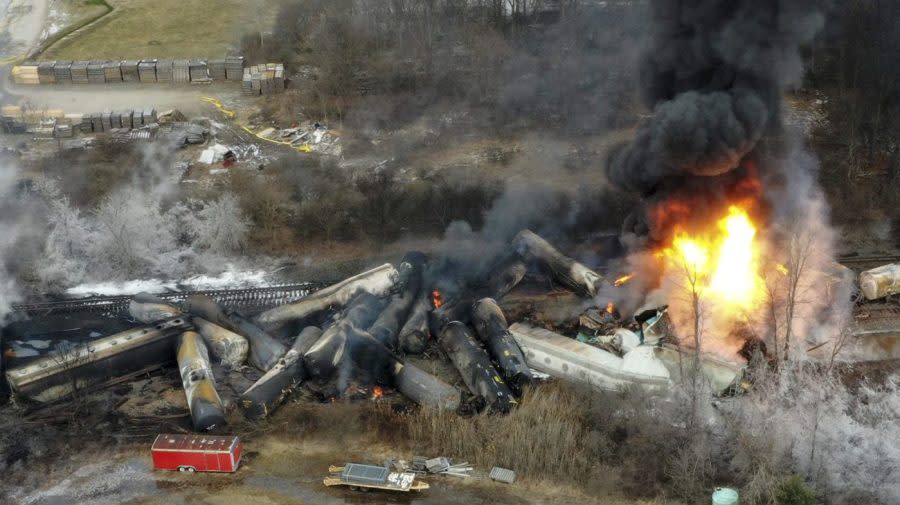Former EPA contractor says agency took 5 days to deploy chemical detection plane in East Palestine

A former Environmental Protection Agency (EPA) contractor who was involved in the creation of a program used to collect environmental data from the air has alleged that the agency delayed deployment of the plane for five days following the 2023 derailment of a train carrying hazardous chemicals in East Palestine, Ohio.
In a NewsNation interview, Robert Kroutil alleged that the EPA took days to deploy its Airborne Spectral Photometric Environmental Collection Technology (ASPECT) plane, used to collect unusual chemical or radiological signals in the air. Kroutil, who was involved in the development of ASPECT for both the Defense Department and the EPA, said typical EPA protocol is to deploy the plane within hours of an incident.
“We should be there at least two weeks to monitor the situation [and] that did not happen” in East Palestine, Kroutil told NewsNation’s Rich McHugh.
NewsNation is owned by Nexstar, along with The Hill.
No one was hurt or injured in the Feb. 6 crash, in which a Norfolk Southern-operated train spilled toxic substances into the area. However, residents have reported rashes and unexplained illnesses in the aftermath.
The surrounding area was briefly evacuated. Local officials conducted a controlled burn on the derailed cars in hopes of averting an explosion.
“We only were deployed for two missions on February 7. And by that time the [chemical] plumes were out, the fire was out,” Kroutil said. “The aircraft actually only collected data, eight minutes worth of data over the targets.”
In an affidavit dated May 13, Kroutil alleged that “[w]e had equipment that could have answered a lot of questions and saved exposure in East Palestine — even prevented the vent and burn — but it was not deployed and operated to collect that information in a timely manner and did not use the correct methods.”
Kroutil’s claims echo testimony by National Transportation Safety Board Chair Jennifer Homendy, who told Sen. JD Vance (R-Ohio) in March that Norfolk Southern contractors “lacked the scientific background” to deem the controlled burn necessary.
An EPA spokesperson told The Hill in an email that weather conditions prevented deploying the ASPECT aircraft on Feb. 6, the day of the controlled burn, and that data was collected the following day in a manner “consistent with previous ASPECT responses.”
“Within hours of the derailment on February 3, EPA responders were on-scene establishing a robust air monitoring network at the site and within the community. EPA’s ASPECT plane was just one component of a comprehensive air monitoring and sampling network that included several instruments to collect air samples and measure contaminants at and around the site,” the spokesperson said.
“In the first two days, EPA’s air monitoring readings were below detection levels for most contaminants, except for particulate matter. EPA air monitoring did not detect chemical contaminants at levels of concern in the hours following the controlled burn.”
This story was updated at 3:16 p.m.
For the latest news, weather, sports, and streaming video, head to The Hill.

